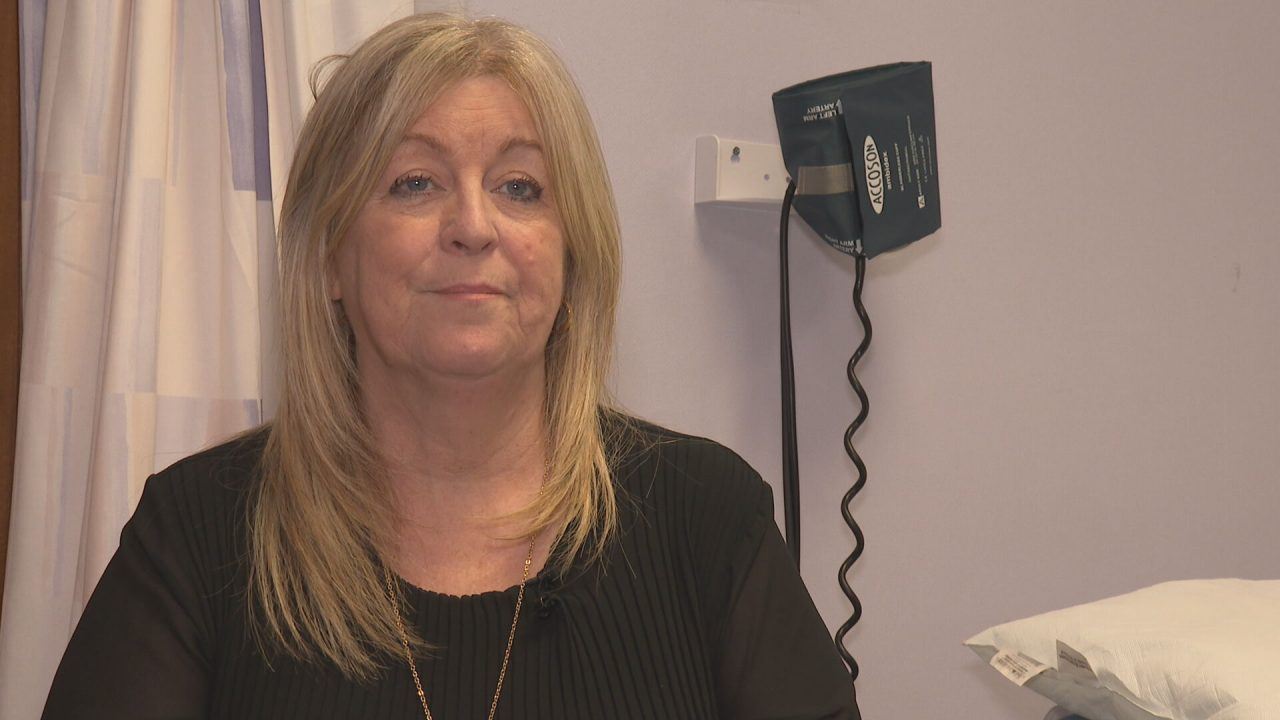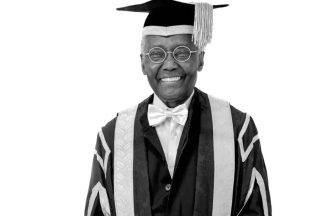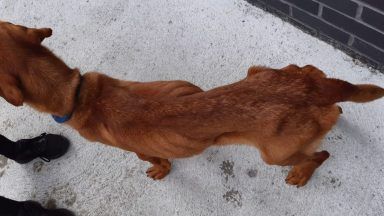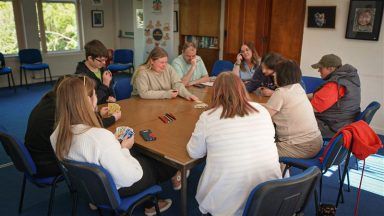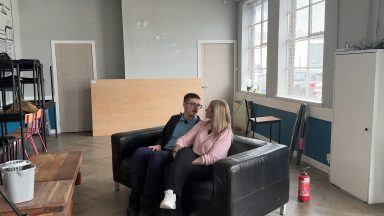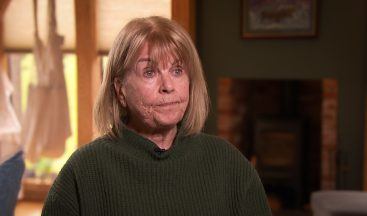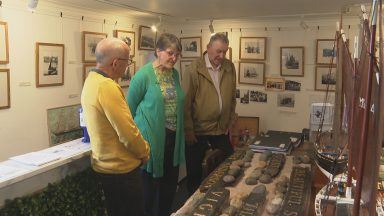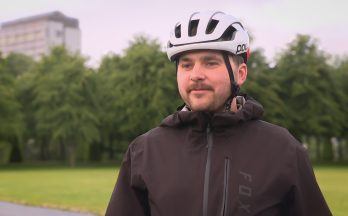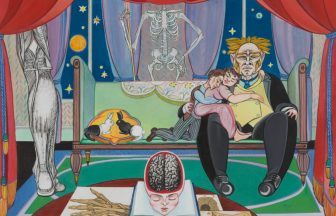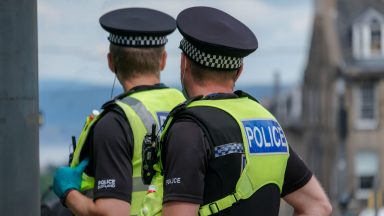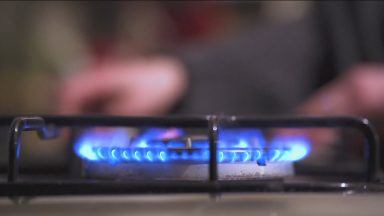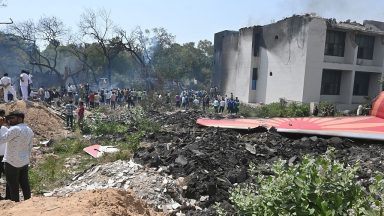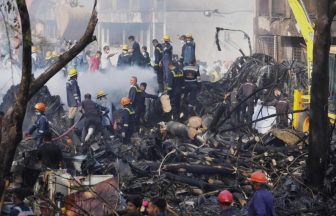A gran has undergone life-saving surgery to have a tumour removed after it was detected by AI during an X-ray.
Diane McCallum was referred for further examination less than 24 hours after being seen by radiographers at Stobhill Hospital, where the new software found a growth in her right lung.
The RADICAL (Radiograph Accelerated Detection and Identification of Cancer of the Lung) trial, at NHS Greater Glasgow and Clyde uses AI to enhance chest X-rays with the aim of improving early discovery of lung cancer.
Chiefs say the technology could “potentially speed up a patient’s care journey from weeks to days.”
Diane, 60, from Bishopbriggs was referred for examination after presenting to her GP with a persistent cough in May.
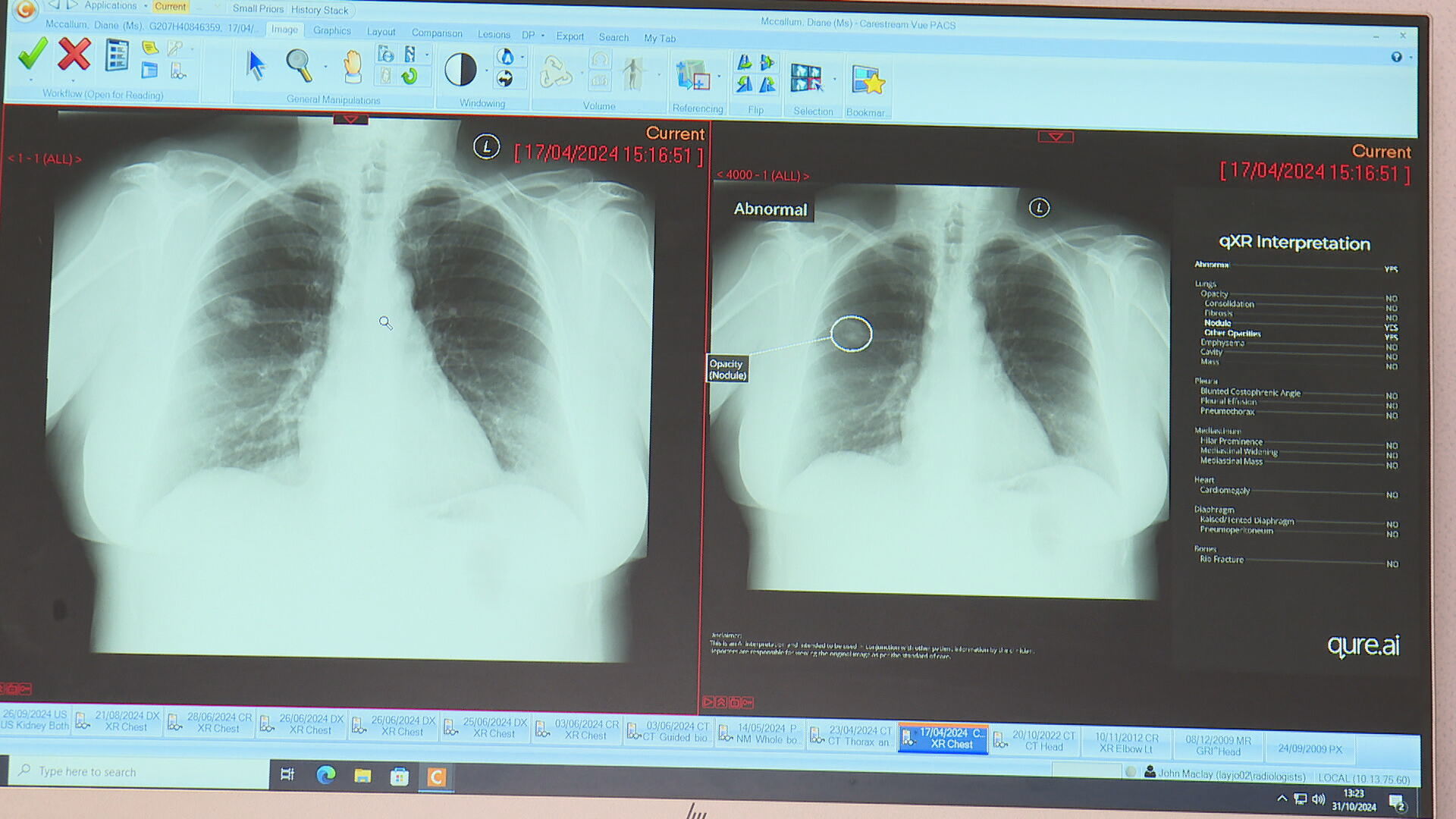 STV News
STV NewsShe was referred for an X-ray in May and had a phone call from the radiologist the following morning saying an abnormality was detected. Her GP was notified and she was then referred for a CT scan.
After the growth was found to be cancerous, Diane was scheduled for robotic keyhole surgery to remove the upper lobe of her right lung eight weeks after her first appointment
She is now undergoing preventative chemotherapy to prevent the cancer coming back.
Diane told STV News: “I was so impressed – it’s so efficient and effective, to be getting that call the next day is surreal. I’m so grateful we got the wheels in motion so fast.
“Without AI, I might not have even been diagnosed yet. The referrals would have went to the doctor, whenever they got round to it. That could have been weeks, a month before anything even started.
“When I went for surgery, my tumour had grown within that seven weeks. How much would it have grown if I had to wait seven weeks more?
“I’ve just got a new granddaughter, so I’d be worried I wouldn’t see her grow.
“I think that’s the bit I find quite difficult. Why would we do it that way when we could it within 24 hours?
“I’m telling everybody about it. I just can’t praise it enough.”
She added: “I can’t describe how much this has impacted my family.”
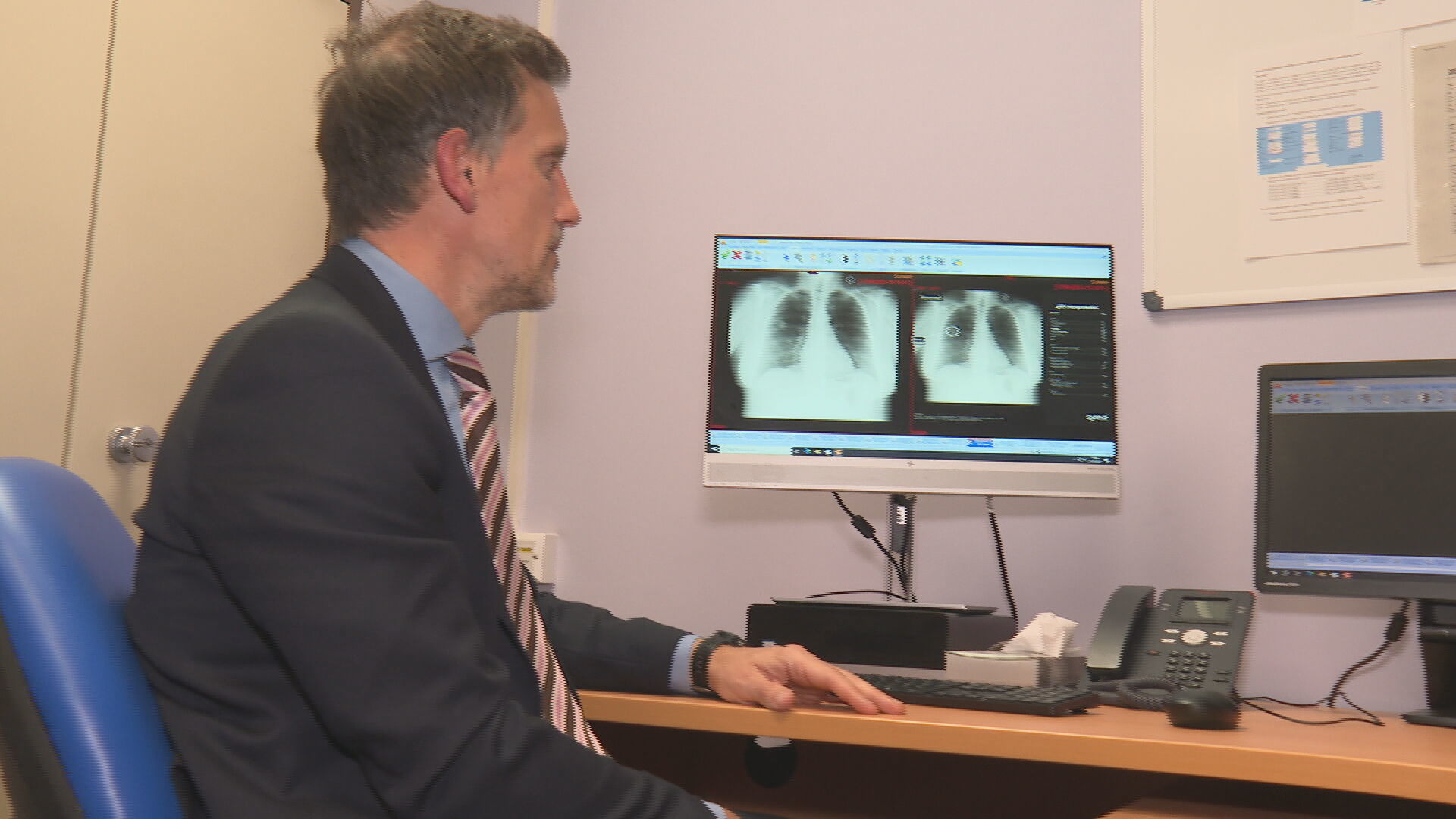 STV News
STV NewsThe technology automatically segregates ‘normal’ chest X-rays and flags abnormalities such as masses or lung nodules, enabling the prioritisation of patient case reporting for clinicians.
This could potentially speed up the start of a patient’s care journey from weeks to days as it analyses chest X-rays in near real-time.
Diane was treated by respiratory consultant Dr John Maclay at the Glasgow Royal Infirmary.
“This technology is not replacing healthcare workers – it’s supporting them in the process of reporting and treating patients,” he said.
“That results in Diane getting a CT scan quickly, an appointment in the clinic, her diagnosis and management of cancer dealt with quickly.
“AI is here to stay and it can be of benefit in terms of patients, their diagnoses and getting treatment quicker.”
Head of the West of Scotland Innovation Hub, Katriona Brooksbank, which has been supporting with the AI trial.
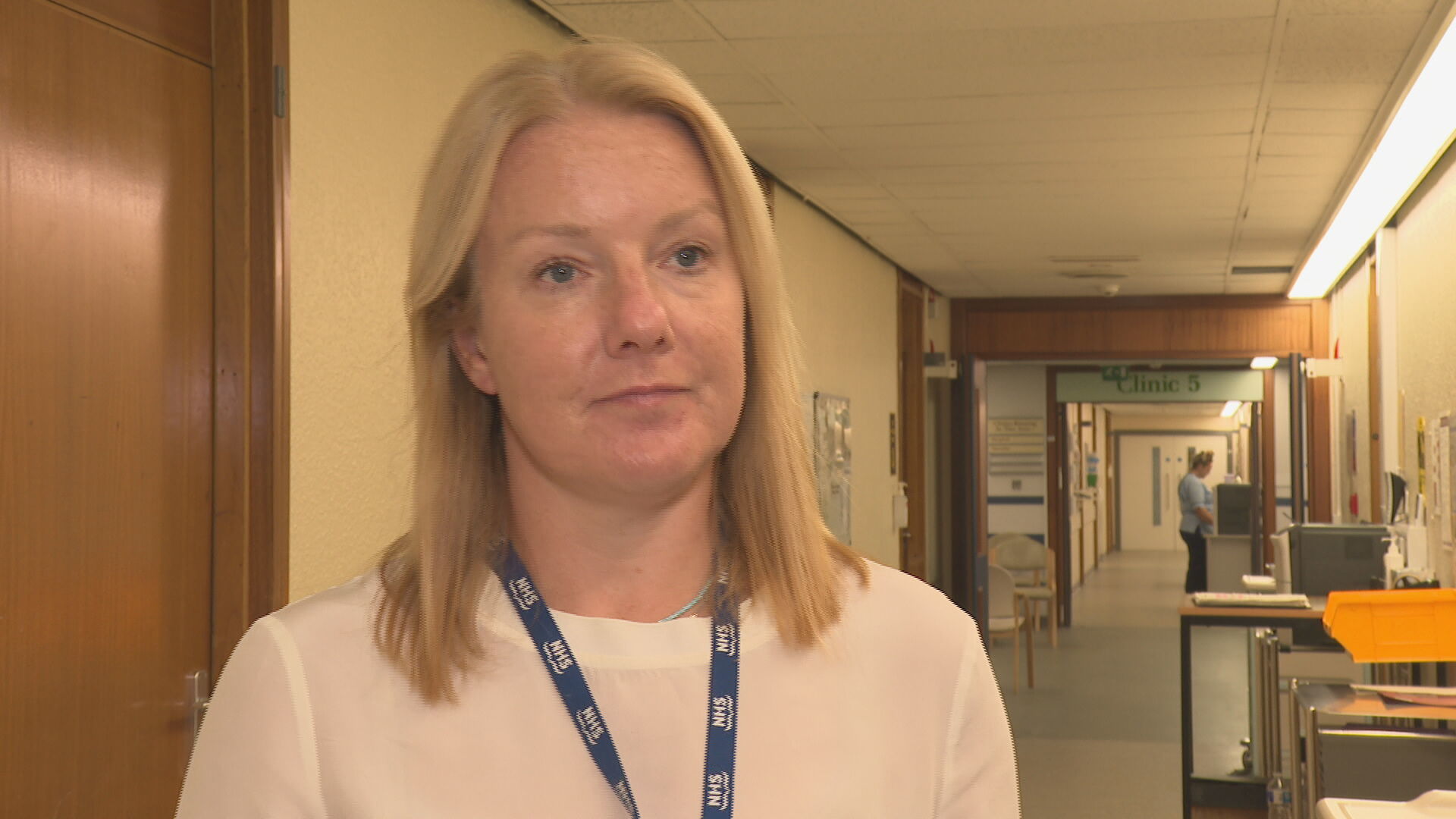 STV News
STV NewsShe said their job is to ensure technology is “safe and ethical” to deploy, and said it is not designed to replace humans in the workforce.
“We use the data we have about patients to make sure the right people have the right access to human, clinical care at the right time,” she said.
“What’s been amazing about this piece of research is that, unlike normal research where it’s on an individual patient basis, we’ve been able to deploy this technology on a health board wide basis.
“We’ve notified patients that AI will be reading their X rays, they might not come in suspicious of lung cancer, but as an incidental finding.
“AI may allow us to have early detection of something that looks suspicious flagged to a human to use their clinical expertise to review the image and then make an appropriate diagnosis and treatment.”
Follow STV News on WhatsApp
Scan the QR code on your mobile device for all the latest news from around the country


